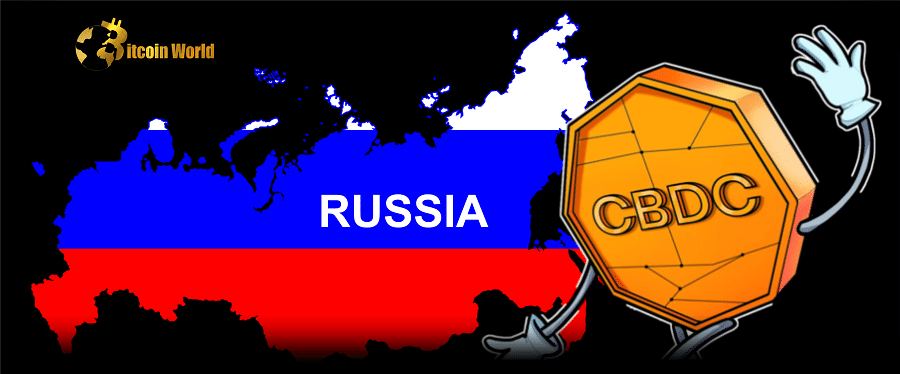In a move that could reshape the landscape of international finance, Russia is reportedly stepping up its efforts to establish a cross-border settlement system using its central bank digital currency (CBDC), the digital ruble. Facing persistent sanctions following its invasion of Ukraine, the nation’s central bank is actively exploring innovative solutions to maintain its global financial connections. What exactly does this entail, and what are the potential ramifications?
What’s the Plan? Exploring Russia’s CBDC Settlement Models
According to recent reports, the Bank of Russia is set to delve into two distinct models for facilitating cross-border CBDC transactions this quarter. Let’s break down these approaches:
- Bilateral Agreements: This model envisions Russia forging individual agreements with various countries. Think of it as establishing direct digital payment highways between nations. Each agreement would outline the specific rules and mechanisms for converting and transferring digital assets, ensuring seamless transactions within the agreed-upon framework.
- Hub-like Platform: The second, more ambitious model proposes a centralized digital hub where Russia and other participating countries can connect. This shared platform would operate on common protocols and standards, streamlining cross-border payments. Imagine a unified digital clearinghouse for international transactions.
Which model is more likely to succeed? Experts suggest the bilateral approach might be easier to implement initially, offering a quicker route to establishing connections with willing partners. However, the hub-like platform is considered more forward-thinking, potentially offering greater scalability and efficiency in the long run.
Bilateral vs. Hub: A Quick Comparison
| Feature | Bilateral Agreements | Hub-like Platform |
|---|---|---|
| Complexity | Simpler to implement initially | More complex, requiring greater coordination |
| Scalability | Potentially limited by the number of agreements | Higher potential for scalability |
| Standardization | Requires individual agreement on standards | Promotes unified protocols and standards |
| Efficiency | May vary depending on the agreement | Potentially more efficient for multiple participants |
Who Will Be Russia’s Partner? The China Factor
While the exact countries involved remain to be seen, China is frequently mentioned as a prime candidate for collaboration. With existing strong economic ties and a shared interest in exploring alternative financial systems, a partnership between Russia and China on CBDC settlements seems like a logical step. Reports suggest that Russia aims to utilize its digital ruble for settlements with China as early as 2023.
Beyond Technology: The Political Hurdles
While the technological aspects of implementing a cross-border CBDC system are significant, the political landscape presents its own set of challenges. As Alexey Voylukov from the Association of Banks of Russia points out, the introduction of a digital ruble won’t magically alter Russia’s global political standing. Trials and implementation will likely be limited to nations that have friendly relations with Russia and possess the necessary technological infrastructure.
The Bigger Picture: Why Now?
The push for a cross-border CBDC settlement system is largely driven by the economic sanctions imposed on Russia. These sanctions have significantly impacted the country’s ability to conduct international financial transactions through traditional channels. Therefore, exploring alternative systems like CBDCs becomes a strategic imperative.
It’s worth noting that Russia has previously explored other avenues to circumvent sanctions, including considering the use of cryptocurrencies for foreign trade. In fact, an agreement was reached between the Bank of Russia and the Ministry of Finance to allow cross-border payments using cryptocurrency. This demonstrates a clear intent to diversify its international payment mechanisms.
Challenges and Considerations
Implementing a cross-border CBDC system is not without its hurdles. Some key challenges include:
- Technological Interoperability: Ensuring different CBDC systems can communicate and transact seamlessly is crucial.
- Regulatory Harmonization: Navigating differing legal and regulatory frameworks across countries can be complex.
- Security Concerns: Robust security measures are essential to protect against cyber threats and ensure the integrity of transactions.
- Geopolitical Factors: Political tensions and international relations can significantly impact the adoption and success of such systems.
Looking Ahead: What Does This Mean for the Future?
Russia’s foray into cross-border CBDC settlements marks a significant development in the evolving world of digital finance. While the path forward may be complex and influenced by geopolitical factors, the exploration of these alternative systems highlights a growing trend towards digital currencies and the desire for greater autonomy in international transactions. Whether through bilateral agreements or a unified platform, the outcome of Russia’s efforts could have lasting implications for the future of global payments and the role of central bank digital currencies.
Key Takeaways
- Russia is actively researching two models for cross-border CBDC settlements: bilateral agreements and a hub-like platform.
- Sanctions are a major driving force behind this initiative, pushing Russia to seek alternative financial channels.
- China is a likely partner for Russia in establishing these systems.
- Political factors will play a significant role in the success and adoption of Russia’s CBDC strategy.
- This move reflects a broader trend towards exploring digital currencies for international transactions.
The development of Russia’s cross-border CBDC system is a story to watch closely, as it could signal a significant shift in the global financial landscape.
Disclaimer: The information provided is not trading advice, Bitcoinworld.co.in holds no liability for any investments made based on the information provided on this page. We strongly recommend independent research and/or consultation with a qualified professional before making any investment decisions.




